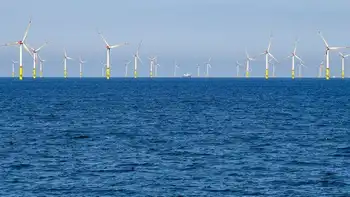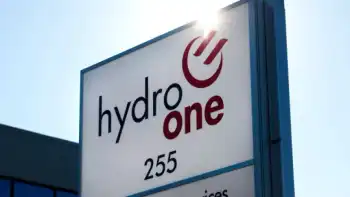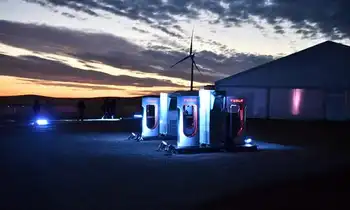Reactor snag delays cancer care
The "nightmare" has left nuclear medicine doctors across the province struggling to find medical isotopes, which are injected into patients before they receive a nuclear imaging test. The tests are used extensively in cancer care for diagnosis and to track its spread.
"There is only one reactor in the North American continent that actually supplies most of these agents," said Dr. Christopher O'Brien, president of the Ontario Association of Nuclear Medicine, referring to the facility in Chalk River. "When this reactor goes down there is a significant impact."
The problem is these radioactive agents have a shelf life from two weeks to six hours. "You can't stockpile it," said O'Brien. "Basically what we are doing now in Ontario is rationalizing services or not offering them."
For every month of disrupted supply, about 10,000 Ontario patients – 90,000 across Canada – are affected, he said. Some patients have alternatives, such as MRIs, but that means lengthy waiting lists grow longer for everyone.
Chalk River built the world's largest research reactor in 1947 and since then has become the global leader in isotope supply. On Nov. 18, the reactor was taken offline so the electrical system could be repaired, with plans to restart on Nov. 23. That didn't happened.
The shortage could persist for nearly two weeks, according to the Ontario health ministry, but the Ottawa-based supplier of the material says it could extend into January.
Dr. Carol Sawka, Cancer Care Ontario's vice-president of clinical programs, said the situation is not critical at this point.
"However there is no question the fact people aren't able to get these tests now will result in a fair amount of disruption. People who have the tests ordered will have to have them cancelled. If the test can't wait until the system is back up and running they'll need to be scheduled in for alternative tests and the whole system is under pressure to begin with," said Sawka.
Health Minister George Smitherman said they are monitoring the situation closely.
"We are certainly in a circumstance within a number of days where there will be shortages and that this will force our front-line health care to make sure they're using available resource in a way that best supports priority patients. In the next three or four days the implications for us are going to become clearer."
The shortage is creating unnecessary stress for patients and putting Canada's highly profitable medical isotope industry at serious risk as the international community searches for alternative suppliers.
"We have almost no product to use," said Dr. Karen Gulenchyn, chief of nuclear medicine at Hamilton Health Sciences, which across four hospitals performs about 80 imaging procedures a day that depend on the uranium-derived isotopes called molybdenum-99.
She said the hospitals are down to eight procedures daily and expect to be out of isotopes by December 10.
O'Brien said his hospital – the Brantford General campus of the Brant Community Health System – could do only six of the 14 bone scan patients slated for December 4. "Yesterday I had to decide – do I treat my 75-year-old lady (with a) query hip fracture who can't move or do I treat a lady with breast cancer who has new pain in her ribs that may represent metastatic spread of her cancer?" he asked. "This has been a nightmare for us."
At the University Health Network, home to Princess Margaret, Toronto General and Toronto Western, some elective scans are being delayed. Emergency cases are being treated and patients are getting select procedures, such as sentinel lymph node biopsies for breast cancer management.
A generator with molybdenum is on its way to the University Health Network from Europe.
The shutdown is likely to prompt other countries to reduce their dependence on Canada's medical isotope industry, which effectively has a monopoly as a supplier of more than two-thirds of the global market, said Dr. Sandy McEwan, chair of Edmonton's Cross Cancer Institute and president of the U.S.-based Society of Nuclear Medicine.
At the heart of the problem is the 50-year-old National Research Universal reactor, owned by Atomic Energy of Canada Ltd. and operated out of its Chalk River lab.
The molybdenum-99 radioisotopes produced are used on more than 20 million patients around the world each year, according to AECL. The isotopes are distributed by Ottawa-based MDS Nordion.
The reactor is normally shut down every 17 days for four or five days of maintenance, according to AECL. However, MDS Nordion didn't disclose the Nov. 18 shutdown until November 30, stating it expected isotope supply to commence again by mid-December.
In a recent statement, the company said the outage is now expected to extend into January and expressed concern over the impact on patients. "MDS Nordion is working closely with its backup supply network to mitigate the impact," said the company.
Gulenchyn wonders why there are no backup plans in place, and why the health-care community wasn't informed of the problem until nearly two weeks after the reactor was powered down. With quicker notice, nuclear medicine clinics could have tried to secure alternative sources of isotope supply to help cushion the impact.
AECL does have a backup plan in the form of two new "Maple" reactors. But those reactors, a source of past friction between AECL and MDS Nordion, are over budget and several years behind schedule.
Related News

Ontario Ministry of Energy proposes growing hydrogen economy through reduced electricity rates
TORONTO - The Ontario Ministry of Energy is seeking input on accelerating Ontario’s hydrogen economy. The province has been promoting growth in the clean tech sector, including low-carbon energy production, as an avenue for post-COVID-19 economic recovery. Hydrogen produced through electrolysis (or “green hydrogen”) has been central to these efforts, complimenting both federal and provincial initiatives to create vibrant domestic and export markets for the energy as a principal alternative to conventional fossil fuels.
On April 14, 2022, the Ministry filed a proposal (the Proposal) on the Environmental Registry of Ontario (ERO) to gather input from stakeholders. As part of Ontario’s…





